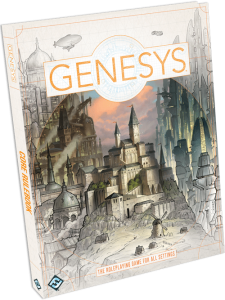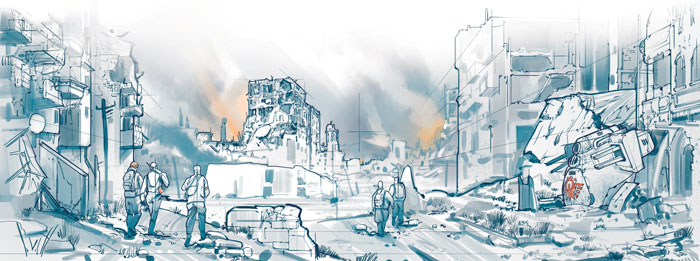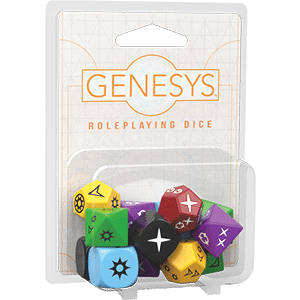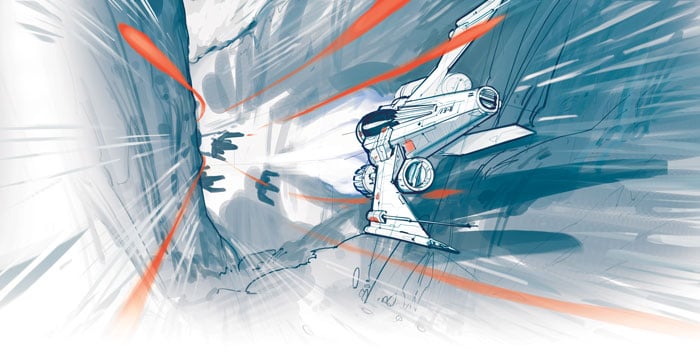I have really been enjoying the resurgence of board gaming, and tabletop RPGs especially. Dungeons & Dragons is no longer thought of as a niche activity reserved for nerds. You can read about it in The New Yorker, Forbes, and of course, industry-leading mainstream media too: Nerds on Earth.
There are so many options. If you like horror, there’s Call of Cthulhu and Dread. You like science fiction/fantasy: how about Starfinder or Edge of the Empire. How about humor: Ghostbusters and Meddling Kids. There are countless others.
Last year, I started running therapeutic gaming groups as part of my counseling practice, and it’s really been fascinating. Depending on the participants in my groups, I can choose a system and setting that will provide the necessary structure and support for me to facilitate opportunities for growth in a collaboratively created world. What kind of story the group wants to tell is always important. Do they want to slay dragons as knights and wizards of old, or maybe be paranormal investigators stomping ghosts or exorcising demons? Maybe they want to be modern days spies thwarting terrorists, or even space travelers fighting for intergalactic freedom.
The genre, setting, and mechanics of the game all weigh heavily in my choice of a system because ultimately my job as game master and therapist is to help those players (through their characters) be the authors of their own life story. Any tool that can help with that has my interest. So, when the core rulebook for Genesys by Fantasy Flight Games arrived at Nerds on Earth Headquarters, I had to check it out.
The Genesys RPG by Fantasy Flight Games: Epic Storytelling
 FFG already has a successful RPG set in the Star Wars universe. If you’re familiar with the mechanics used in those games, then you already know most of what you need to play Genesys. Genesys uses the same Narrative Dice System with a couple of changes: there is no Force die, and Destiny Points are now Story Points.
FFG already has a successful RPG set in the Star Wars universe. If you’re familiar with the mechanics used in those games, then you already know most of what you need to play Genesys. Genesys uses the same Narrative Dice System with a couple of changes: there is no Force die, and Destiny Points are now Story Points.
One big difference though is that Genesys is setting and genre agnostic. That is, the mechanics of the game are general enough that they are as easily applied when running a post-apocalyptic game as they are in a game about superheroes. Before we dig into the crunchy bits, what’s the book like?
Genesys RPG: Crisp and Clean… and no Caffeine
The book weighs in at 253 pages, not including character sheet templates in the back. It uses a really simple color palette, and crisp unembellished design. Everything from the layout of text and tables to the illustrations is reminiscent of blueprints. It really works and is a great example of form following function.
The book is about designing and creating your own game, so the drafting and design aesthetic really helped get me in that headspace when reading it. The index is brief but has most of what you need to get you pointed in the right direction. The table of contents is also brief, but everything is clearly divided and well organized in a logical order.

Part 1 of the book takes you through mechanics, characters, equipment, encounters, and a very brief section for the GM about getting started. The GM section is noteworthy due to the prominence of a page at the beginning dedicated to implied social contracts in gaming and how to make those explicit instead. This is obviously important in my therapeutic groups, but it was refreshing to see that the writers saw fit to include ideas on creating a safe environment and how to facilitate discussion at the table about setting rules and boundaries that will encourage respect, promote empathy, and ultimately ensure that everyone has a good time.
Discussion of creating your own custom setting is included in Part 2 of the book. A setting worksheet template at the beginning of Part 2 serves as a good reminder of things that are important to consider when crafting your setting. The chapters that follow cover a number of settings providing an exposition of common tropes, themes, and flavor ideas to help get you started in crafting your world and your game. Examples are provided for those settings that include ideas for creating characters, gear, weapons, and enemies to fit in that setting.
After the appetizer in Part 1, and browsing through the menu in Part 2, Part 3 really serves up the meat for the GM. The final chapters walk you through creating whatever you might need for your game: skills, talents, equipment, enemies, and encounters. Examples of alternate rules that cover possible setting specific features like magic, vehicles, or computers and suggestions for how to customize rules are provided. The last chapter covers different tones you can use for your game: everything from horror to romance.
Genesys RPG: The Narrative Dice System
 Unlike D&D where you add modifiers from character traits and equipment to the result of a die roll and compare that to a target number to determine success, Genesys uses a dice pool with various symbols to support results that go beyond success or failure.
Unlike D&D where you add modifiers from character traits and equipment to the result of a die roll and compare that to a target number to determine success, Genesys uses a dice pool with various symbols to support results that go beyond success or failure.
On these dice, there are symbols for success and failure, but also symbols for advantage and threat. You build your dice pool from dice with positive symbols (success and advantage) based on character traits, equipment, and circumstantial bonuses. However, the dice pool will also include dice with negative symbols (failure and threat) based on GM assigned difficulty and environmental factors that could affect your chances. Success and failure symbols cancel and whatever is left determines the result.
Additionally, advantage and threat symbols cancel and whatever is left allows for some interesting options. You could succeed only to encounter a new threat: you unlock the door, just as a guard walks around the corner. Likewise, you could fail, but gain an advantage: your attack misses the monster, but it falls down as it dodges out of the way. Genesys isn’t concerned with grids, tactics, measuring and counting things; it’s about facilitating fun and interesting narrative. And to that end, it’s a really intriguing system.
Genesys RPG: Final Thoughts
I’m really intrigued by the narrative dice system. It seems like it would be really useful in promoting creativity, expressive communication, flexibility, and emotional resilience. Success alone is always nice, but dealing with adversity even in success can be frustrating. This system is designed to provide ample opportunities to work on rigid binary thinking where things are either good or bad and to practice being in that grey area of conflicting emotions. I can easily recommend this game to those industrious and creative GMs out there.

The Genesys system is a lot of fun. I’d love to see additional material for Genesys (like the supplements released for Fate) for those of us who aren’t quite ready to build it ourselves. Regardless, I’m definitely adding this one to my library of options.
Pick up the Genesys RPG from your FLGS or direct from Fantasy Flight.
[Disclosure: Fantasy Flight games provided Nerds on Earth with a copy of Genesys for review.]

